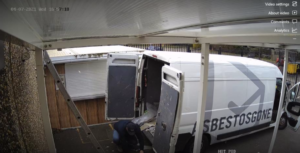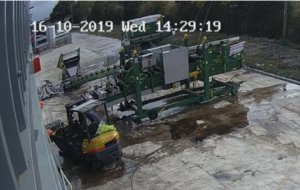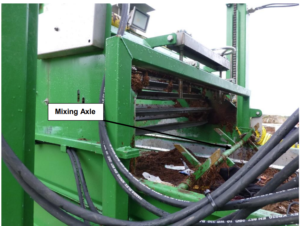Rogue trader spared immediate spell behind bars after unsafe gas work
A self-employed rogue trader has been handed a suspended prison sentence after carrying out illegal gas work in Gloucestershire.
Christian Davis falsely claimed he was Gas Safe Registered but had actually been removed from the register due to concerns about the standard of his work and his competency.
Trading as BS1 Plumbing and Heating, the 45-year-old carried out illegal work as part of the renovation of a mobile park home in Hallen between June and July 2020. Some of that work included the installation of pipework, a boiler and gas hob. The illegal work resulted in significant expenditure for the property owner.

An investigation by the Health and Safety Executive (HSE) found that Davis had carried out the work while not registered with the Gas Safe Register.
He was handed a 48-week suspended prison sentence by a District Judge sitting at Bristol Magistrates’ Court on 17 April 2024. She told him he ‘could have killed someone’ and that she was relieved to find out he no longer held himself as competent to carry out gas work. Davis now runs a burger restaurant and has no connection to the plumbing and gas trade.

Christian Davis, of Callington Road, Brislington, Bristol pleaded guilty to breaching Regulations 3(1), 3(3) and 3(7) of the Gas Safety (Installation and use) Regulations 1998. He was given a 48-week custodial sentence, suspended for two years. He must also pay £3,000 in compensation to the homeowner and £5,000 in costs. The prosecution was brought by HSE enforcement lawyer Samantha Wells.
HSE inspector Alex Stobart, who led the investigation, emphasised the risks associated with unqualified gas work, stating: “Those who undertake gas work without the relevant competence or qualifications put members of the public at risk of death or serious injury.
“We will hold rogue gas traders to account. Gas engineers must be registered with the Gas Safe Register, and we encourage the public to verify an engineer’s credentials online.
“Unfortunately rouge traders such as Mr Davis continue to trade and undertake gas work without having the relevant registration, competence, or qualification required to perform gas work safely.”
Gas engineers and consumers can contact the Gas Safe Register in any of these ways:
- Gas Safe Register
- Phone – Consumers: 0800 408 5500; Engineers: 0800 408 5577
- Email – enquiries@gassaferegister.co.uk
Notes to editors:
- The Health and Safety Executive (HSE) is Britain’s national regulator for workplace health and safety. We prevent work-related death, injury and ill health through regulatory actions that range from influencing behaviours across whole industry sectors through to targeted interventions on individual businesses. These activities are supported by globally recognised scientific expertise.
- More information about the legislation referred to in this case is available.
- Further details on the latest HSE news releases is available.
- Further information on domestic gas health and safety is available.


